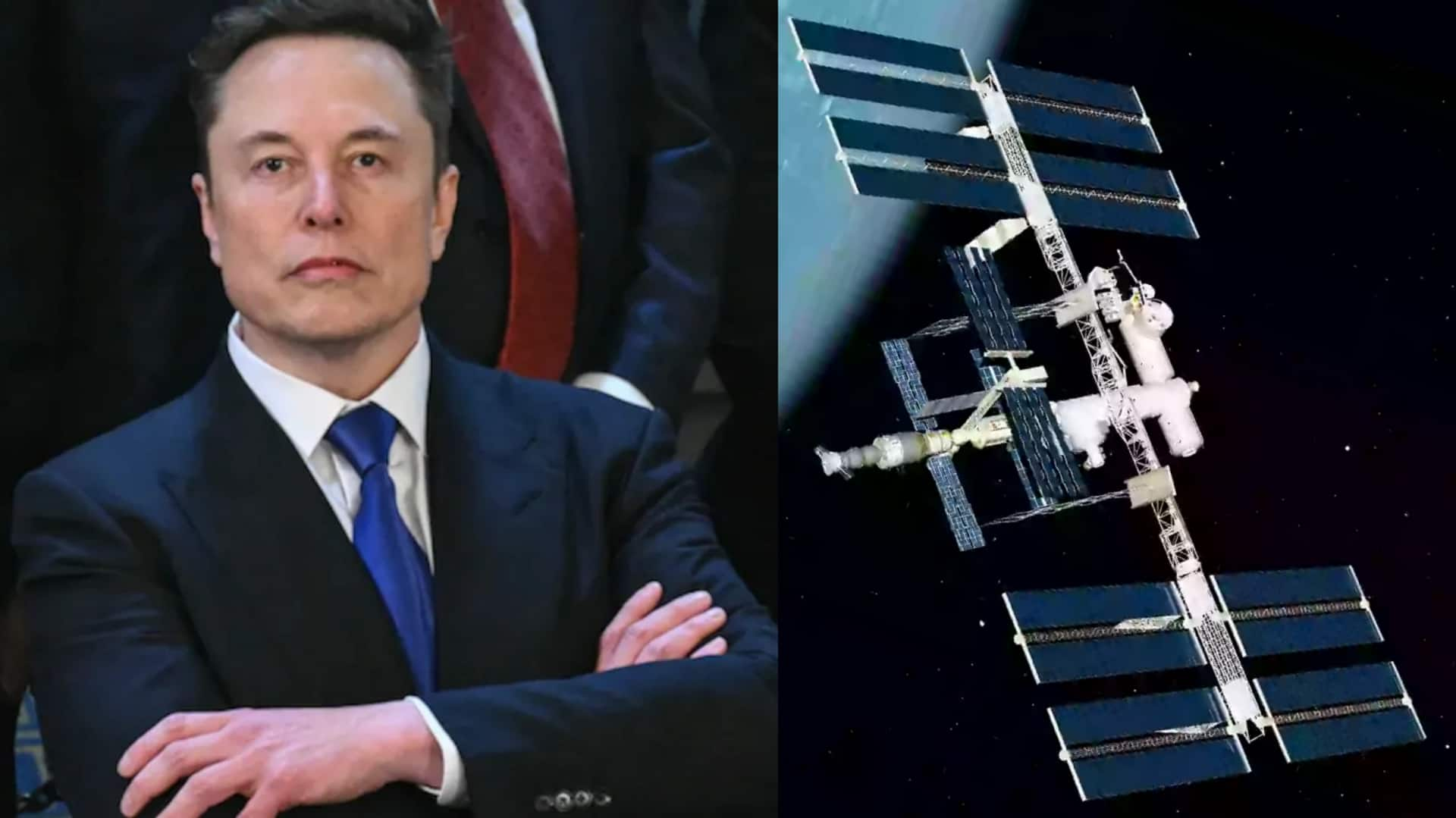
Musk warns ISS is aging, suggests de-orbiting within 2 years
What's the story
Elon Musk has raised alarms over the long-term safety of the International Space Station (ISS). He highlighted that many of its components are aging, which could pose serious risks in the future. Despite SpaceX's ongoing operations with ISS, Musk has suggested that it should be de-orbited within two years. "There are potentially serious concerns about the long-term safety of the @Space_Station. Some parts of it are simply getting too old, and that risk grows over time," he said on X.
Twitter Post
'Some parts of it are simply getting too old'
There are potentially serious concerns about the long-term safety of the @Space_Station. Some parts of it are simply getting too old and obviously that risk grows over time.
— Elon Musk (@elonmusk) June 13, 2025
Even though @SpaceX earns billions of dollars from transporting astronauts & cargo to the ISS, I… https://t.co/TcyUwcwHfE
International collaboration
ISRO's response to observation on ISS
ISRO is working closely with Axiom Space, NASA, and SpaceX to address the ISS Zvezda module observation, which caused a delay in the Axiom-4 (or Ax-4) mission. V Narayanan, Secretary DOS/ Chairman ISRO and Chairman Space Commission, emphasized that safety and mission integrity are their top priorities amid these developments.
Mission postponement
SpaceX announced delay in Axiom mission
On June 11, SpaceX announced a delay in the Falcon 9 launch of the Ax-4 mission to ISS. The company cited that more time was needed for fixing a liquid oxygen (LOx) leak. "Standing down from tomorrow's Falcon 9 launch of Ax-4 to the @Space_Station to allow additional time for SpaceX teams to repair the LOx leak identified during post-static fire booster inspections," it said in an X post.
Mission importance
India, Poland, Hungary astronauts involved
The Ax-4 mission, which was supposed to launch on June 11, 2025, with India's first Gaganyatri on board, is still significant despite the delay. The Ax-4 crew includes astronauts from India, Poland, and Hungary. This will be their respective nations' first-ever trip to the space station and the second government-sponsored human spaceflight mission in over four decades. Group Captain Shubhanshu Shukla will be India's second national astronaut in space since 1984.